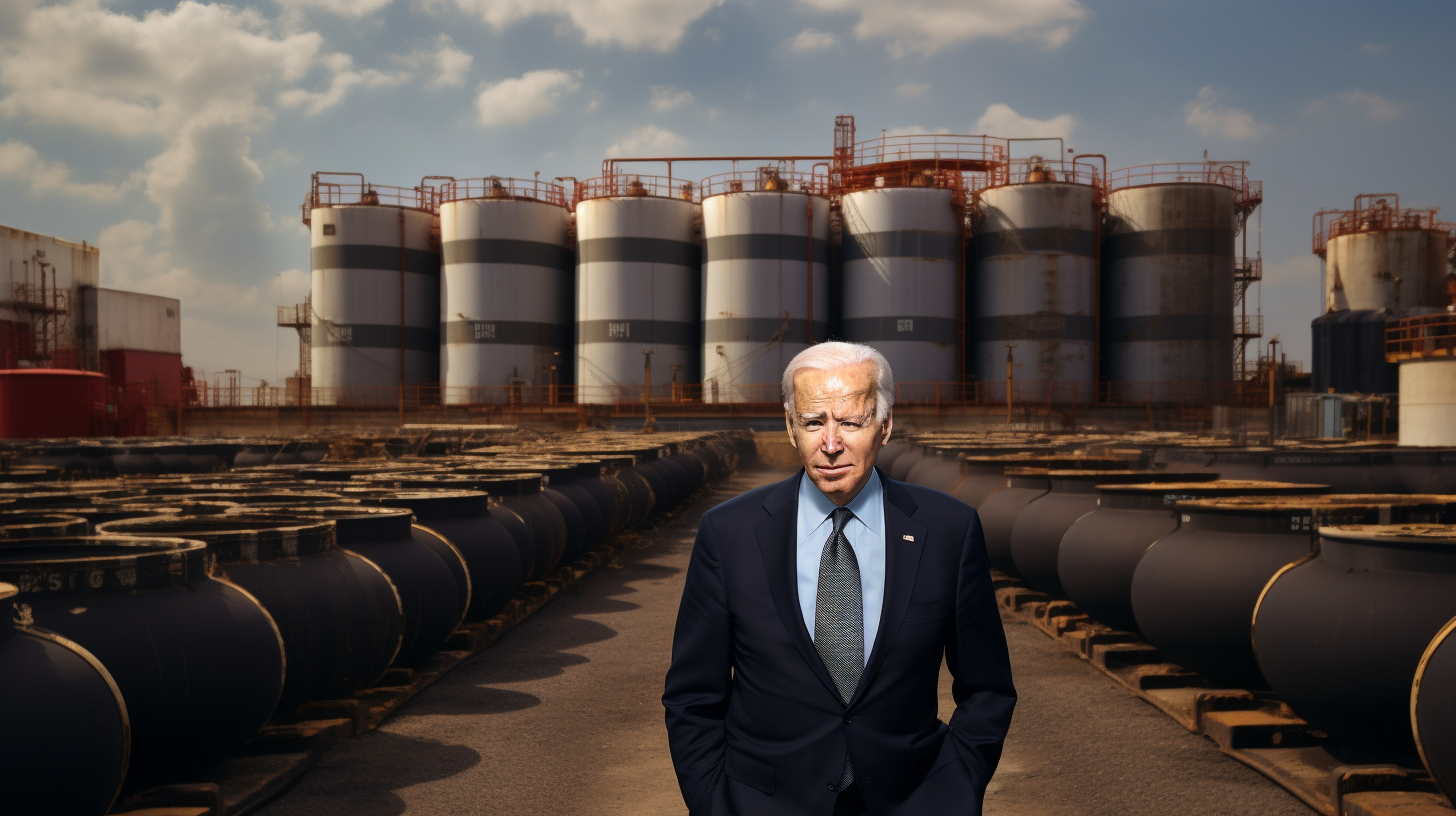In a bold move to combat surging fuel prices and rampant inflation, President Biden is unleashing a flood of black gold onto the markets. The White House is planning to tap a massive 180 million barrels of crude oil from the nation’s Strategic Petroleum Reserve (SPR) – the biggest withdrawal in the reserve’s history.
The news sent oil prices tumbling 5% in early trading as speculators reacted to the supply boost. But will the SPR floodgates really succeed in taming the oil price beast that has economists worried about recession?
The sheer size of the release, equivalent to two full days of global oil consumption, grabbed headlines. Set to be gradually emptied over several months, Biden’s SPR unleashing is meant to act like a shot of bear tranquilizer for the raging oil market.
Ever since Russia’s invasion of Ukraine, reduced supply from the world’s No. 2 exporter combined with surging demand has driven prices to their highest levels since 2008. Brent crude already flirted with a mind-boggling $140 per barrel in March. Even after the SPR news-driven dip, benchmark oil remains stubbornly high at around $105.
For Biden, doling out the emergency crude is a midterm elections Hail Mary pass. Painfully high gas prices have contributed to the president’s dismal approval ratings. Tapping the SPR to lower fuel costs may be his best bet to avoid Democrats enduring a disastrous drubbing by the Republicans in November.
Beyond politics, uncorking America’s oil reserves also sends an important message to the market. It signals the Administration’s determination to fight an inflation rate that keeps printing four-decade highs. Few things impact inflation expectations like changes in oil prices. A meaningful drop could help tamp down the runaway price increases eroding consumer confidence.
But will the effort succeed or will it flounder like past attempts? With global crude inventories at historic lows, many analysts see the SPR release as a mere band-aid solution. It provides some short-term relief but doesn’t fix the supply and demand imbalance.
Goldman Sachs estimates the 180 million barrel slug will help rebalance markets this year. But it warned the move doesn’t resolve the structural deficit caused by excluding Russian exports.
Previous SPR releases also failed to produce lasting effects. Oil prices quickly rebounded after 60 million barrels were tapped in November 2021 and another 30 million in March 2022.
This time, the White House is also counting on allies for help. The International Energy Agency meets soon to potentially coordinate a collective release from its members’ reserves.
But Biden’s SPR gambit already seems at odds with other moves meant to restrict oil supply and fight climate change. Canceling the Keystone XL pipeline permit and banning new federal drilling auctions counterproductively worsened the supply crunch. A of couple million extra daily barrels from those sources would have eased pressure on prices.
The Administration now finds itself trying to fix with one hand problems partly created by the other. That internal tension undermines the large SPR release’s credibility.
Traders also scoffed when OPEC refused to boost production more than a token amount after the U.S. lobbied for extra output. With the cartel and allies like Russia benefitting handsomely from $100+ oil, they have little incentive to pump much more.
Meanwhile, risks of a demand-killing recession loom if the Fed’s inflation fight requires jumbo interest rate hikes. And Covid lockdowns in China already hurt oil demand in the world’s largest importer.
So while Biden’s SPR flow should offer some near-term relief at the pump, it may not move the needle much for long. Markets fear what happens if 180 million barrels merely postpones the supply day of reckoning rather than preventing it.
With inventories low, spare capacity shrinking, geopolitical unrest continuing, and ESG considerations constraining investment, oil looks poised to remain highly volatile. While the SPR release was historic in size, it likely won’t fully tranquilize the energy markets.
